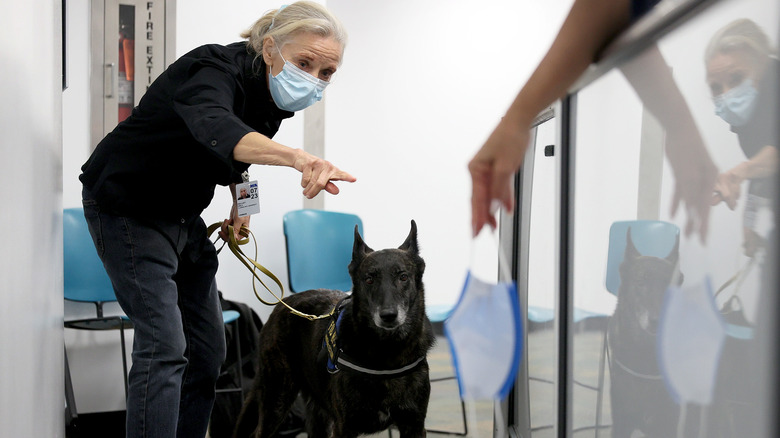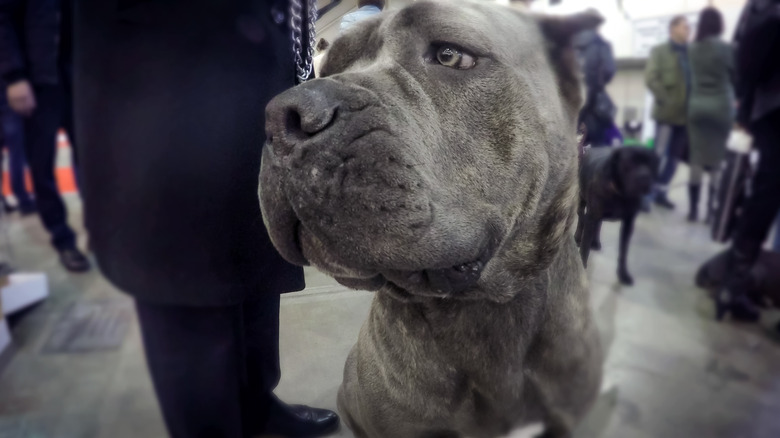How COVID-Sniffing Dogs Can Help Screen Airport Passengers
As scientists continue to explore tools that can help us stay prepared and get ahead of any future pandemic breakouts, dogs have been utilized as one such tool with the potential to sniff out the virus in both symptomatic and asymptomatic individuals (via The Conversation).
One 2021 study, published in Forensic Science International: Synergy, utilized four breeds of canines to determine rates of accuracy in their ability to pick up the scent of COVID-19 through human breath samples using previously worn masks by hospitalized patients with confirmed cases of COVID-19. The dogs were also presented with masks worn by ill patients not infected with COVID-19, in addition to fresh, unused masks. Trained to indicate viral detection, the dogs proved to have over a 90% success rate in identifying masks worn by COVID-positive patients (via The Conversation).
But breath samples aren't the only way dogs can pick up on the presence of viruses. COVID-19 can also be picked up by dogs through our skin (via The Conversation) — as demonstrated in a new two-part study. Published in the British Medical Journal Global Health, four dogs were presented with skin swab samples from 114 COVID-positive individuals and over 300 samples from people having tested negative for the virus. All participants were tested using a self-administered PCR swab test and provided researchers with data regarding their symptoms and demographic information.
The strengths and limitations of canines for COVID screening
For the first part of the study, dogs were trained using positive reinforcement techniques to indicate positive COVID-19 skin samples that were concealed in cans (per British Medical Journal Global Health). As reported by HealthDay, study findings showed the canines to have a 92% success rate in identifying COVID-19-positive skin samples, a 91% success rate in detecting COVID-19-negative volunteer samples, and a more than 89% success rate at identifying asymptomatic COVID-positive individuals.
In the second portion of the study, the dogs' skills were put to the test at an airport in Finland over the course of several months (via HealthDay). In sniffing out passengers, the dogs proved to have a 99% success rate in detecting COVID-negative individuals. Researchers then exposed the dogs to swab samples from over 150 COVID-confirmed individuals, which the dogs identified with just shy of 99% accuracy.
Researchers acknowledged the limitations of the study, having only used one type of variant in canine training (via BMJ Global Health). The development of new variants seemed to influence canine accuracy. Although more research is needed, the study team shared that tailoring canine training to different emerging variants is easily within reach (via HealthDay). "Our preliminary observations suggest that dogs primed with one virus type can in a few hours be retrained to detect its variants," as written by the study authors in the research.


